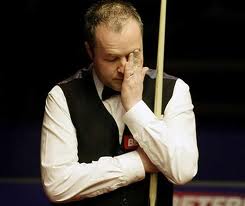NICK HARRIS wanted to launch a website that covers sport in-depth. He got a rude awakening from some of the vitriol it has attracted
Any journalist working in newspapers, particularly national newspapers and especially in this age of instant and often faceless feedback, will be familiar with reader vitriol. Few reporters can have escaped being cyber-maligned at some
stage in comments sections, on club forums and now, directly via Twitter, just for doing their jobs.

It goes with the territory, taking brickbats from keyboard warriors whose age and credibility is not easy to establish when they’re behind user names like “Imamoron789”.
But since becoming the owner-editor of a sports website, sportingintelligence.com, which went live at the end of March, I’ve realised that most of the stuff that gets past moderators is relatively sanitised.
Possibly the most extreme (unpublished) reader reaction on SI so far was from someone using a fake email address to submit responses to a piece exploring which football clubs may struggle to meet UEFA’s “Financial Fair Play” criteria.
This reader began with insults, graduating to threats, then violent taunting rants, a new one every few minutes for several hours, each becoming more hysterical than the last because these comments weren’t being “put through” into
the public domain (not unreasonably, you might think, because it was the middle of the night and I was asleep at the time).
I say this was possibly the most extreme example because the reaction from a clique of Liverpool fans to some articles suggesting that the Chinese would-be saviour Kenny Huang possibly wasn’t the Messiah they were seeking was also extraordinary.
To cut a long story short, it ended with Huang implying to the Chinese media that I was a paid smear man for Tom Hicks and George Gillett (if only it were so easy to earn a crust via the web). Huang’s PR firm Hill & Knowlton then had to intervene to have his most ridiculous quotes airbrushed.
Another story that polarised opinion – with Sporting Intelligence very much in the minority camp – was the John Higgins snooker “match fix” case. It was a personal view that that particular sting had fallen short of proving Higgins had fixed or would fix matches, and an independent tribunal eventually found as much.
But the prevailing view, shaped by one influential paper saying so and most people taking it at face value, was (and remains?) massively damaging to Higgins, regardless of the tribunal outcome.
Sporting Intelligence was not established to be critical of mainstream media, far from it. I am part of that mainstream, mainly at The Independent since 1996, and now as the chief sports news correspondent at the Mail On Sunday.
Rather, the site was established as a platform for stories and subjects that don’t necessarily command much of space in newspapers but that a growing constituency demonstrably find interesting.
One of the ironies of the internet age is that a medium that easily allows for in-depth coverage is frequently filled with plagiarised homogenous guff, typically short, not much of it sweet. Without naming names, some of the most popular football websites in the world are little more than networks of volunteers copying content from mainstream news sites without attribution, perhaps with a twist of invention thrown in.
I spoke to one young journalist at a national title recently who thinks it is acceptable to put content direct from Wikipedia straight into their newspaper, and if that is common at elite level, imagine what it’s like when you don’t get paid.
Yet some of these sites get a massive number of hits. They’re rubbish. Therein lies a dilemma.
On the other hand, specialists such as Andersred (anti-Glazer blogger) and Swissramble (expat football generalist) demonstrate there is an audience for analytical work. Sporting Intelligence, too, wants to break news (like the
Portsmouth debt files), undertake serious research and provide a platform for an in-depth, evidence-based examination of the business and finance of sport.
But it was also established (optimistically) as an outlet for stories on sports law and sports academia, for sports history and for a broad church of columnists, some established and some upcoming.
Regular contributors include our wonderful stats man, Brian Sears, a retired teacher who’s dedicated to his art. He won’t tell you the pass completion percentage for any player but Brian assured me only today that Chelsea haven’t lost three consecutive Premier League games since October 1999, and that, with their next fixture against Newcastle in mind, they haven’t lost a single league match to a promoted team in nine years.
John Roberts is a former Indie colleague and a former ghost writer for George Best, Bill Shankly and Kevin Keegan as well as author of numerous highly acclaimed books. His columns about his life in sports journalism are as entertaining and illuminating as they are well written.
Other examples of the site’s scope can be tasted in a quintet of eclectic stories submitted respectively by a Cambridge academic, a veteran synchronised swimmer, an ice hockey executive, a US-based marketing man and an athletics historian.
I’m under no illusions that we’re niche – more blog than Behemoth. Where the site goes from here will depend on numerous factors including its popularity (approaching 400,000 unique users in 208 countries since launch) and partnerships. There are several collaborations with magazines (wanting their content online) underway, and others in the pipeline.
And feedback is always welcome, at least during waking hours.
One thought on “Blog that dodges the keyboard warriors’ brickbats”
Comments are closed.